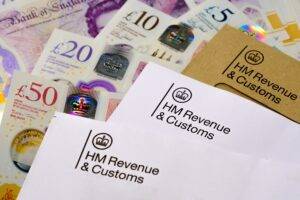With the self-assessment tax return deadline looming, HMRC has highlighted that as many as 44,800 taxpayers have already chosen to spread their tax payments via payment plans with the tax office – however, millions of people yet to file their tax returns have been warned by an expert to be mindful of “sky-high interest rates” applied by HMRC.
In a press release published today, HMRC said more than 7.7m self-assessment customers have filed their tax returns for the 2022/2023 tax year. Included in this group are 44,800 individuals who have requested to set up a ‘Time to Pay’ arrangement with the tax office, totalling £148m.
Anything submitted past midnight on 31st January is considered late and can incur a £100 fixed penalty, which applies even if there is no tax to pay or if the tax is paid on time. After 3 months, these penalties can rise to £900, with HMRC applying a further 5% penalty (or £300, whichever is greater) after 6 months and again after 12 months.
If self-assessment taxpayers owe less than £30,000 they can use the affordability checker on gov.uk and see online to see if they can set up a ‘Time to Pay’. However, with interest applied to any outstanding balances from 1st February – and currently set at 7.75% – self-employed workers have been urged to be mindful.
Seb Maley, CEO Qdos – a tax insurance provider for self-employed workers – commented: “While spreading out your tax bill helps many people make ends meet for the short term, the sky-high interest charged by HMRC means it can cost you considerably more overall.
“As it stands, HMRC charges 7.75% on late payments, which it slaps on tax bills paid after the 31st January deadline, irrespective of whether you’ve set up a Time to Pay or not.
“Incidentally, those due a tax refund – after having paid too much tax on their self-assessment – will only receive 4.25% interest back from the tax office. Put differently, HMRC charges 3.5% more interest than it pays out.
“If you’re not able to pay your tax bill – whether in one go or via a Time to Pay – it’s vital to get in contact with HMRC. Along with being hit with fines and interest, by burying your head in the sand and not sorting your tax return, you could well face a tax investigation too.”
Read more:
HMRC promotes tax payment plan as self-assessment deadline looms


























